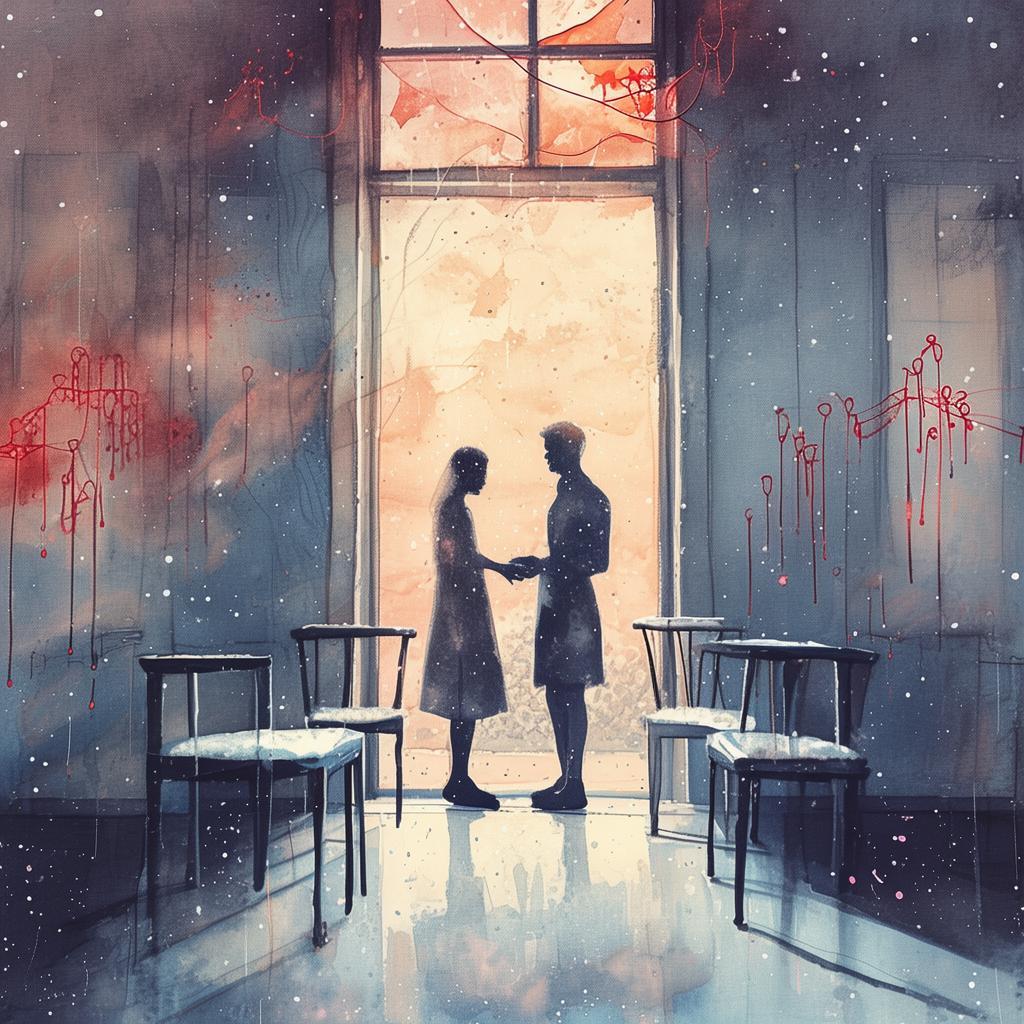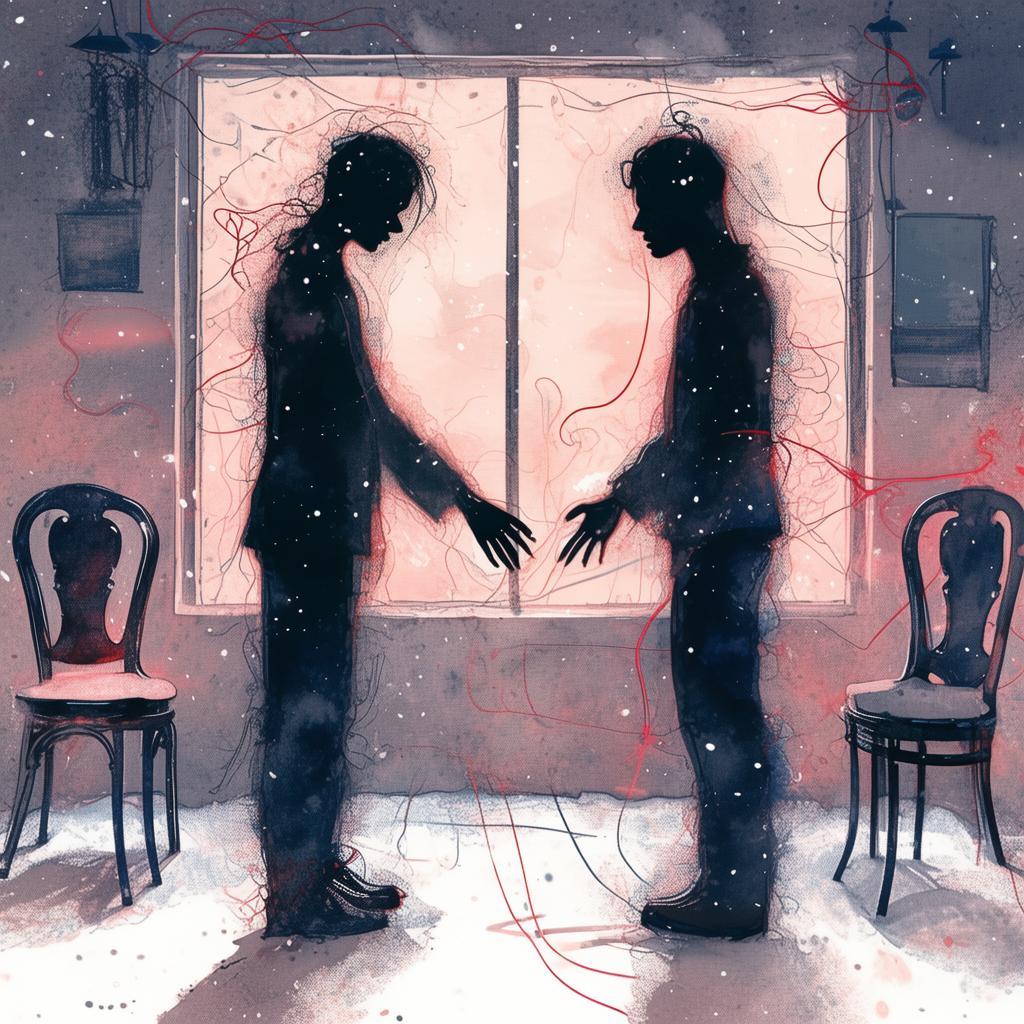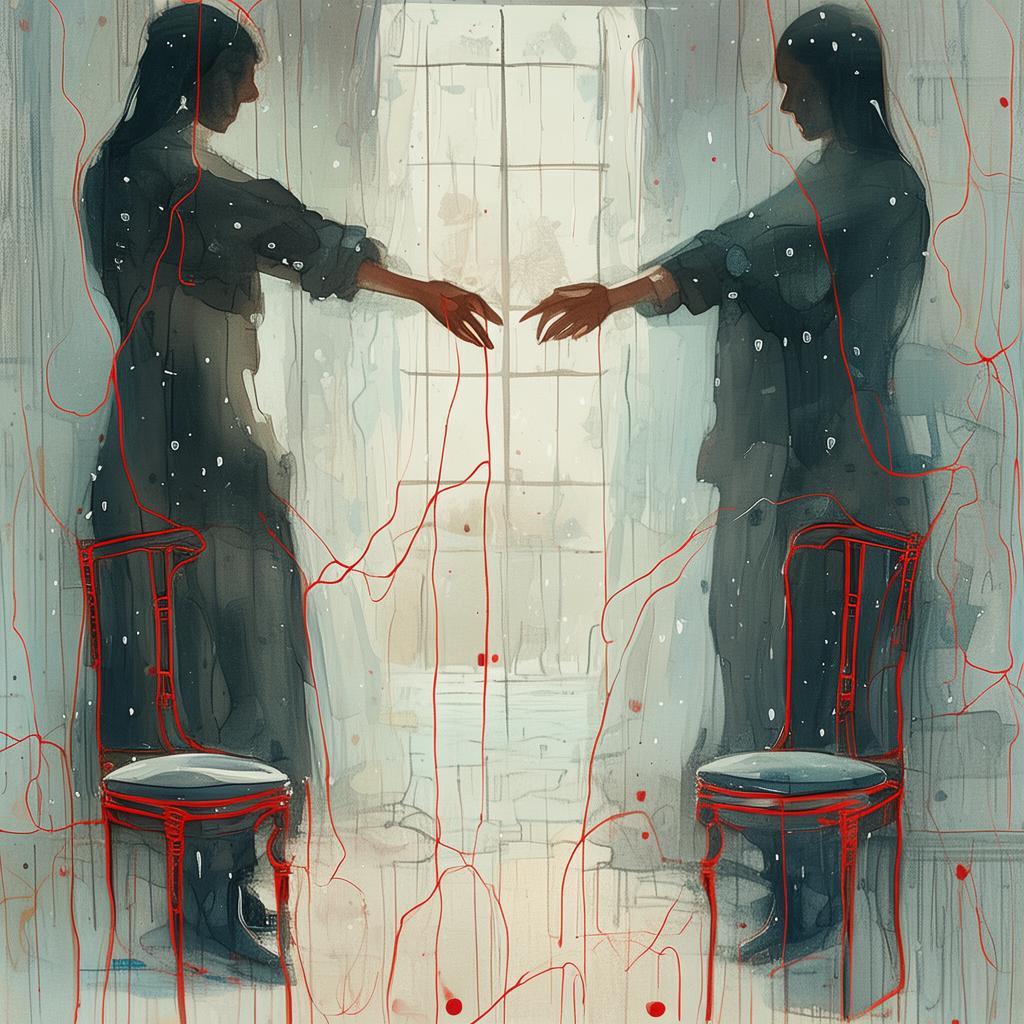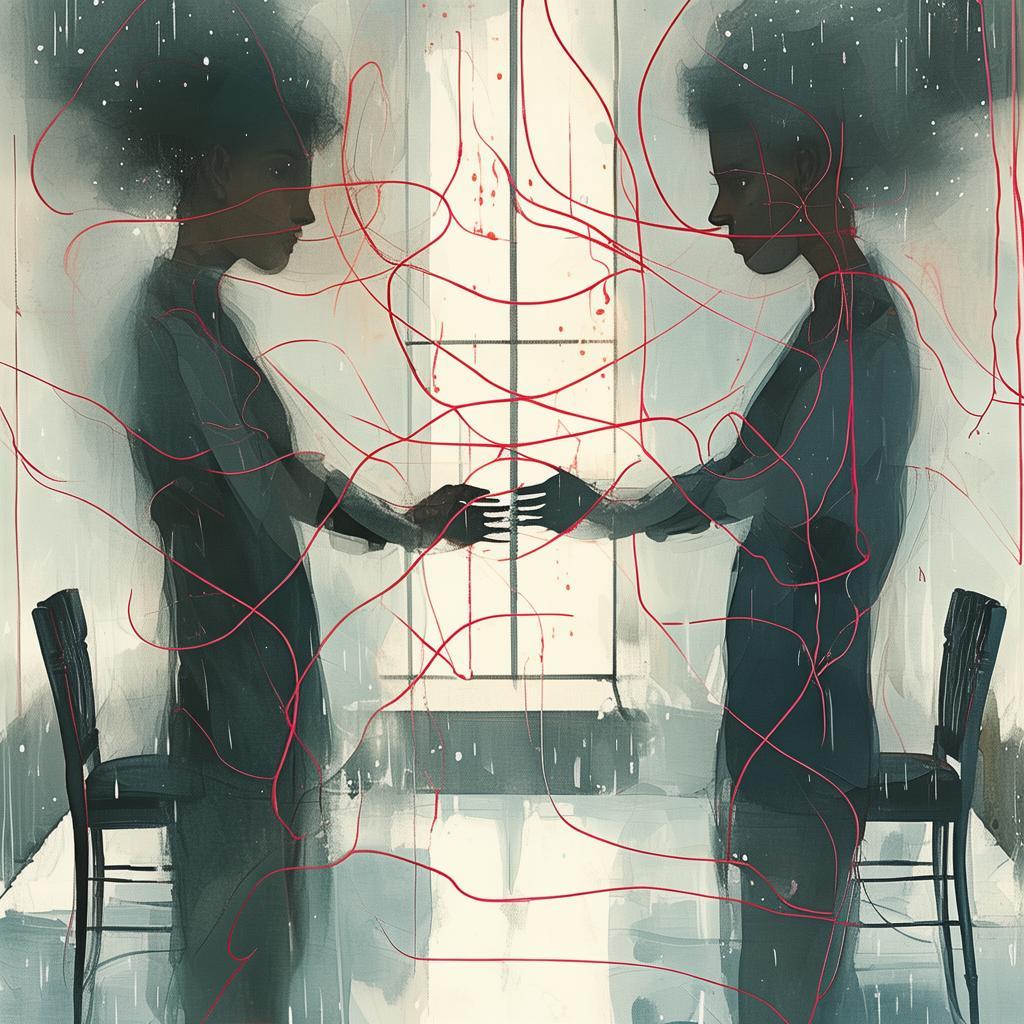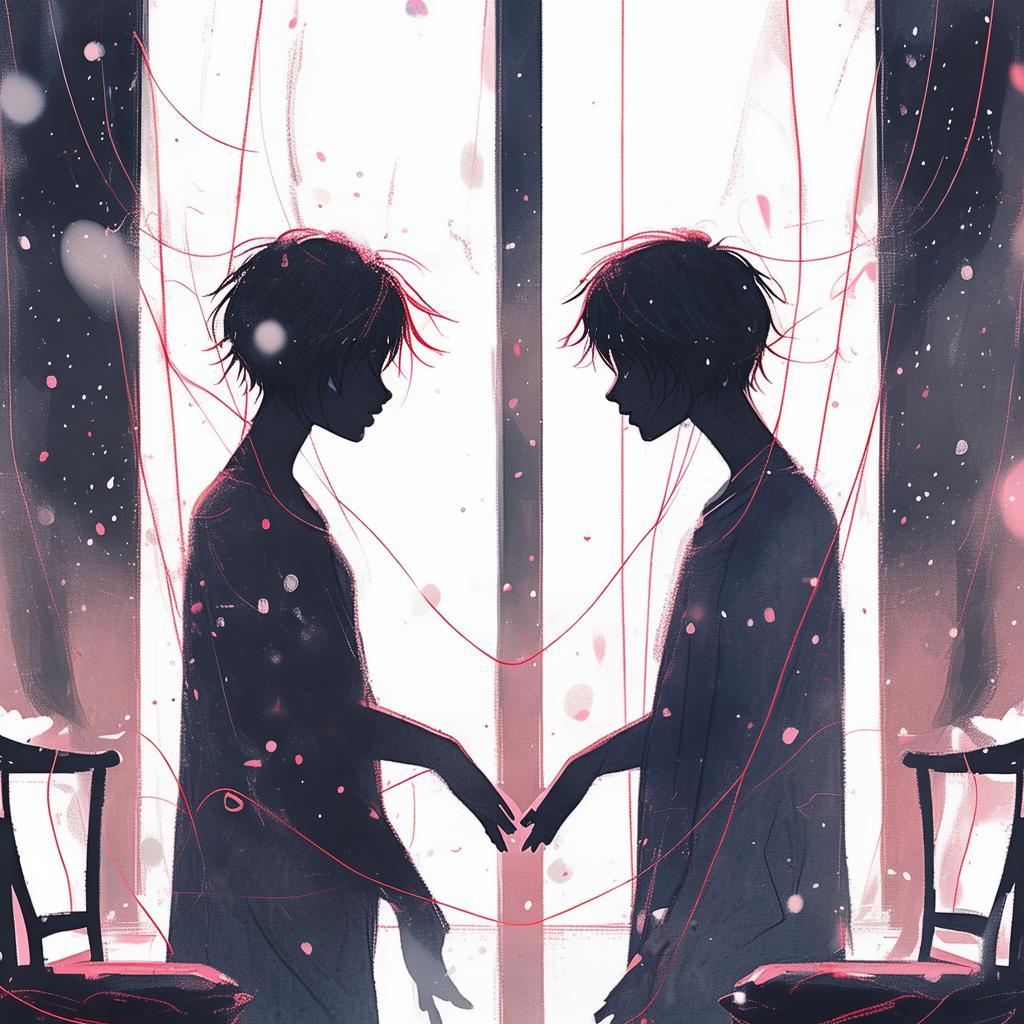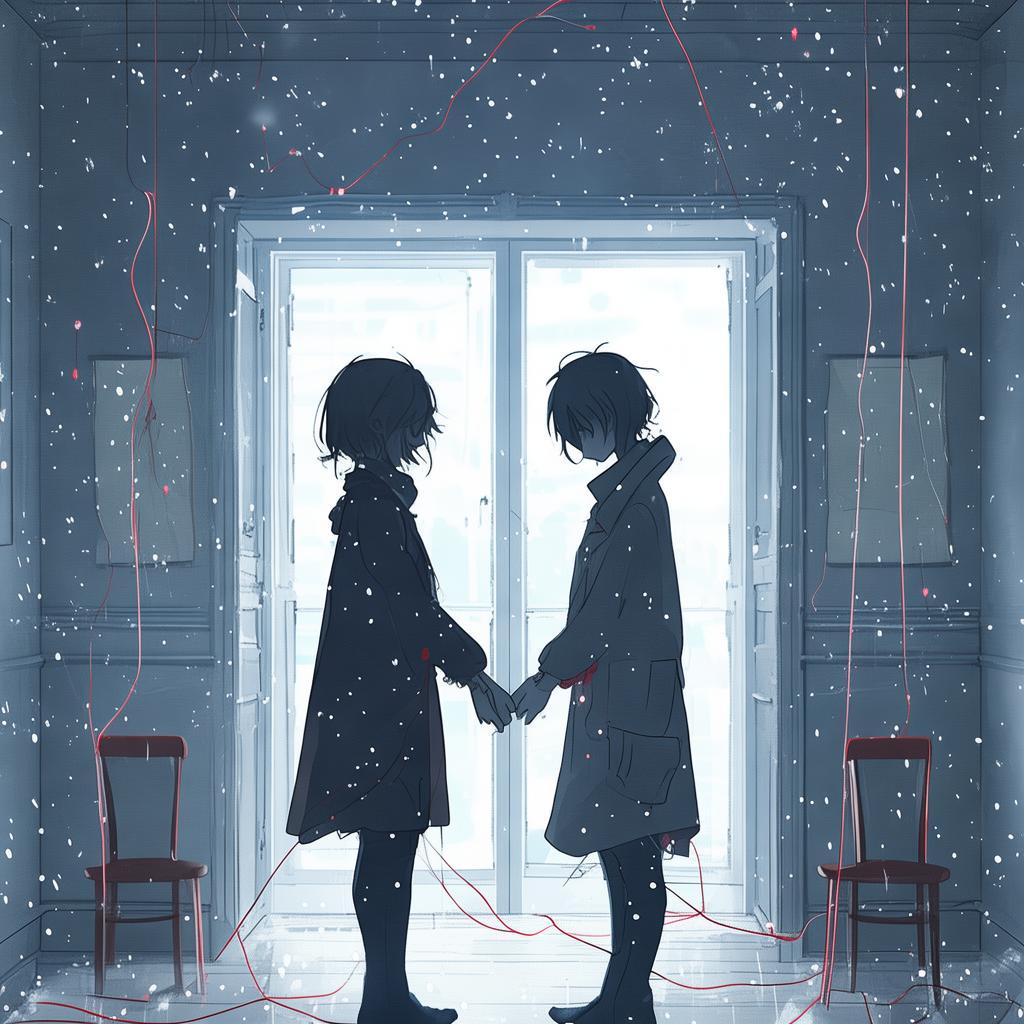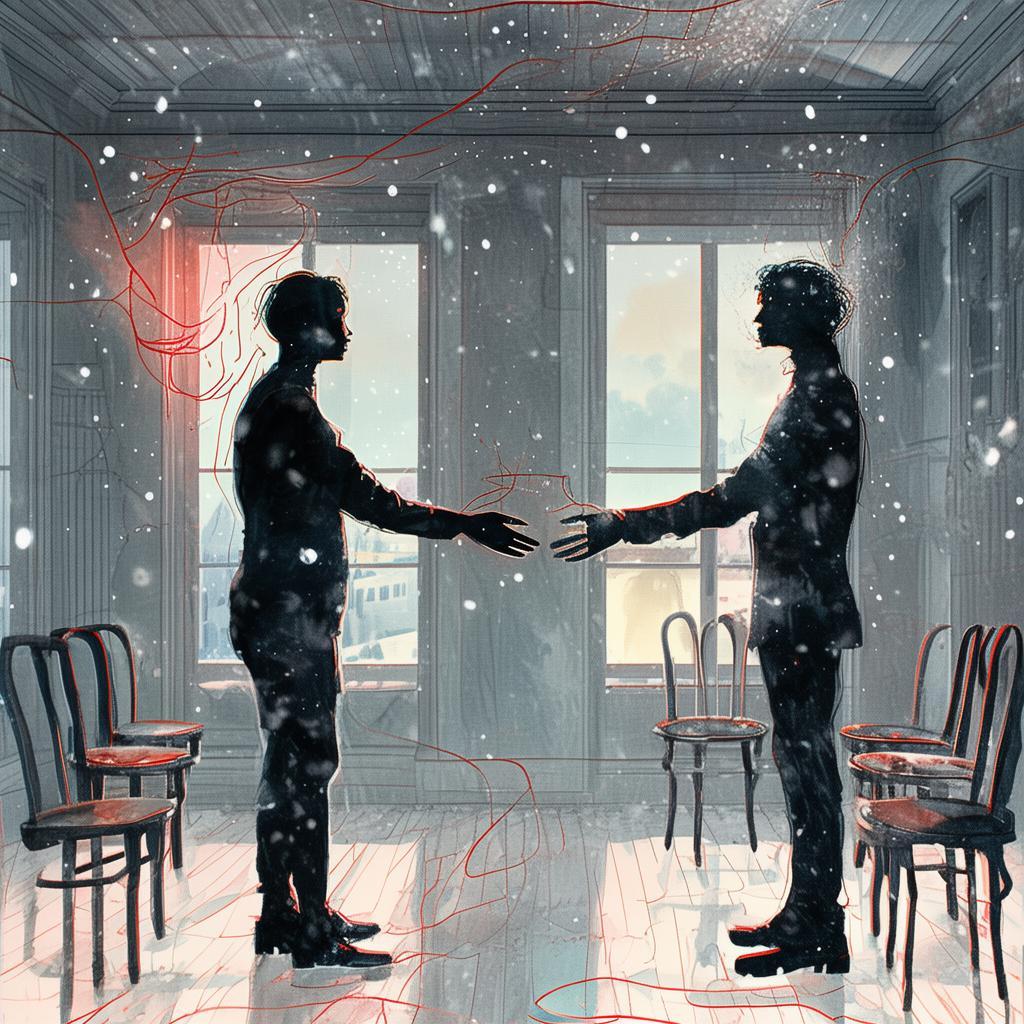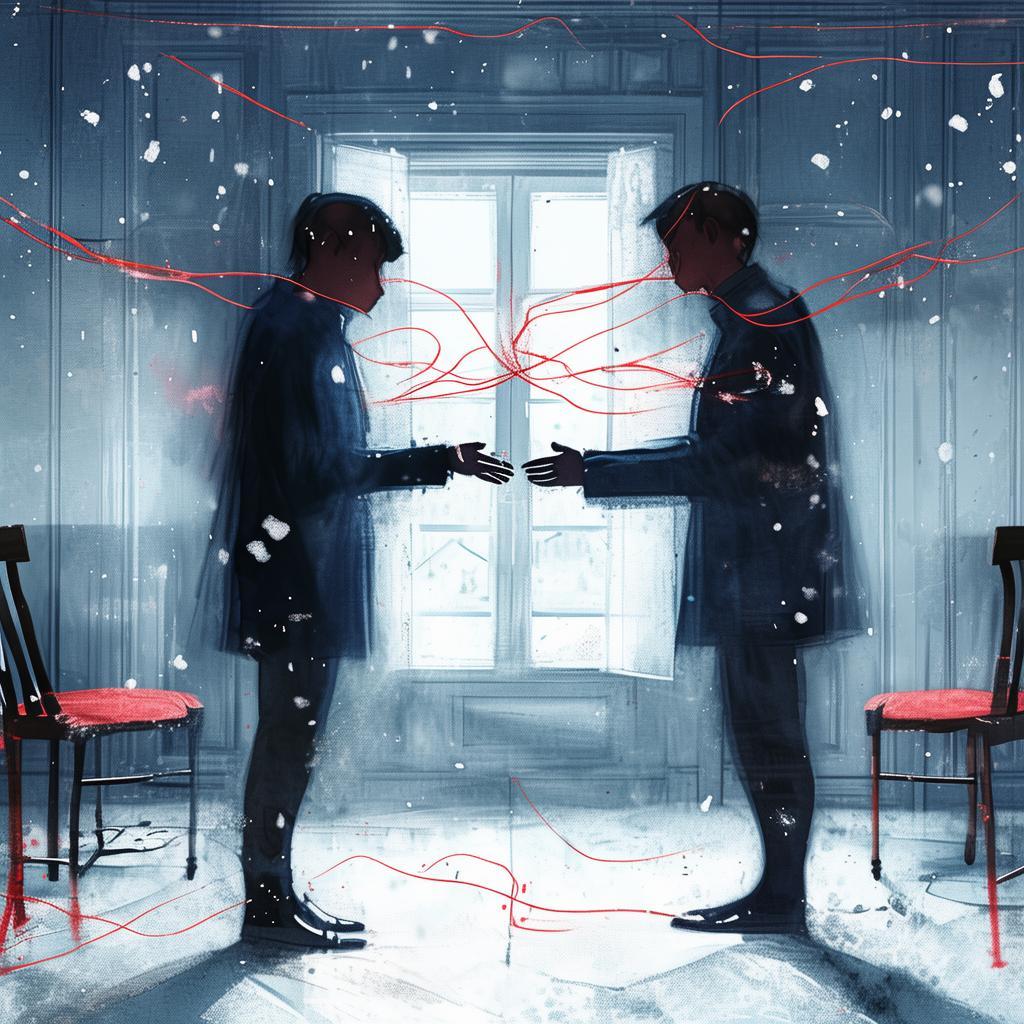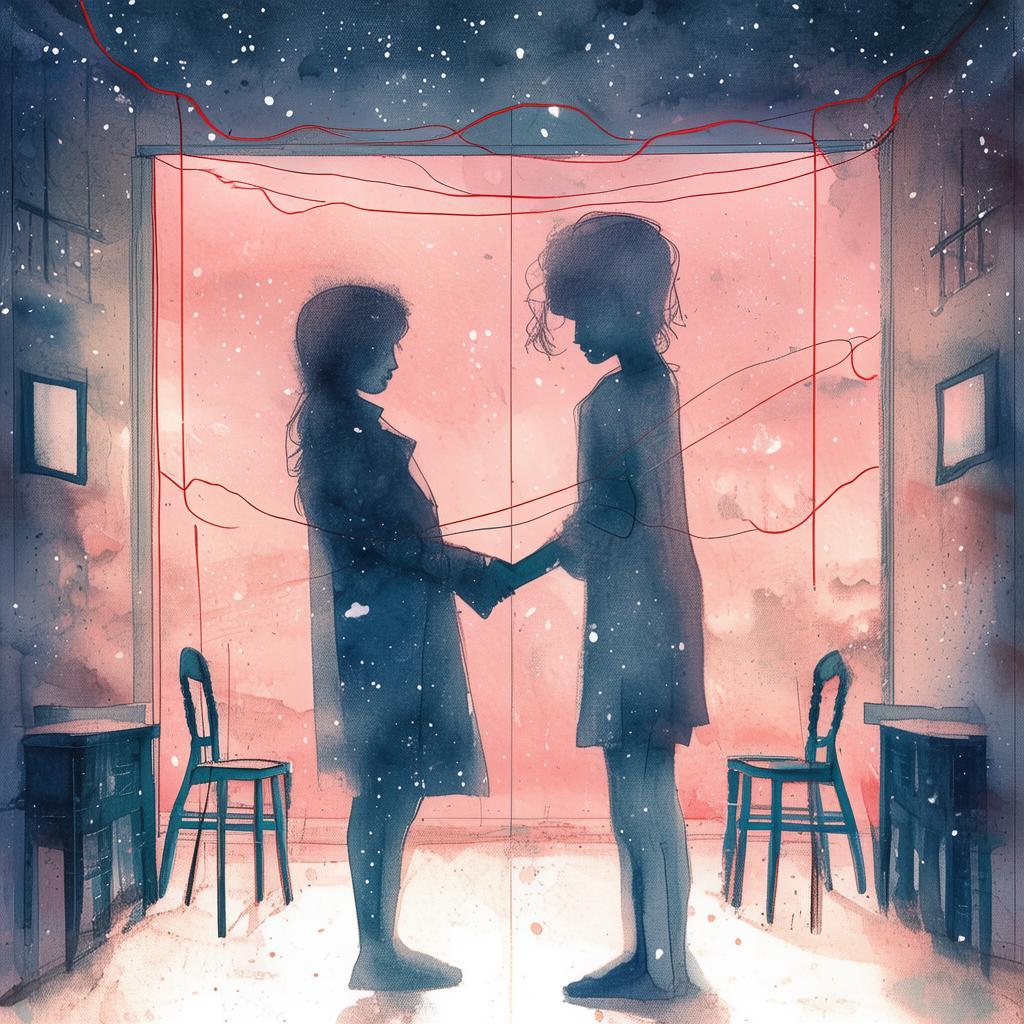The Lament of the Dusk Knight
In the realm of Eldoria, where the wind whispered tales of honor and the sword danced with the dawn, there lived Sir Cedric, a knight whose heart was as steadfast as the steel in his blade. Yet, fate, with its cruel hand, had other plans for the knight. Captured in battle by Prince Alistair of the neighboring kingdom, Cedric found himself ensnared in a web of deceit and duty.
The prince, a man of regal bearing and a heart that had never known the depths of love, had taken Cedric into his service, seeing in him a warrior of valor and strength. But Cedric, bound by his oath to his king, could not allow himself to succumb to the growing affection that bloomed between them. Love, in the face of duty, was a dangerous flower, one that could wither in the shadow of betrayal.
Their days were a dance of duty and deception, their nights a tapestry of longing and silence. Cedric, a man who had sworn to fight for the kingdom, was now forced to serve the man who had once been his enemy. Prince Alistair, whose heart was as boundless as the night sky, could not fathom the depth of Cedric's suffering. He only knew that the knight's eyes held a sadness that no one, not even he, could comprehend.
The bard, a man of the people, traveled through the land, his lyre a conduit for the tales of the realm. In the quiet of the night, he listened to the whispers of the stars, to the tales of love and loss that filled the air. One night, as he wandered near the prince's court, he overheard the heart-wrenching story of the dusk knight.
Curiosity piqued, the bard approached Cedric, who, despite the weight of his duty, could not deny the warmth that spread through him at the sight of the wandering minstrel. The bard, with a voice as gentle as the wind and a heart as vast as the ocean, began to sing the tale of Cedric's plight.
As the song reached its crescendo, Cedric felt a shiver run down his spine, a shiver that was not one of fear but of something far more dangerous—hope. The bard's words, like a balm to his weary soul, spoke of love and redemption, of the possibility that even the darkest night could be pierced by the light of dawn.
Prince Alistair, intrigued by the bard's tale, sought out Cedric, whose presence was like a shadow that he could not shake off. The prince's eyes, once so cold and distant, now held a spark of something else, something that Cedric could not quite name. But as the prince listened, he realized that the knight's pain was his own, a reflection of his own unspoken desires and fears.
The tale of the dusk knight, as sung by the weeping bard, reached the ears of the king, who had always suspected that the prince's heart was not as loyal to the crown as it should be. In a fit of pique, the king ordered Cedric's execution, believing him to be a traitor to the kingdom.
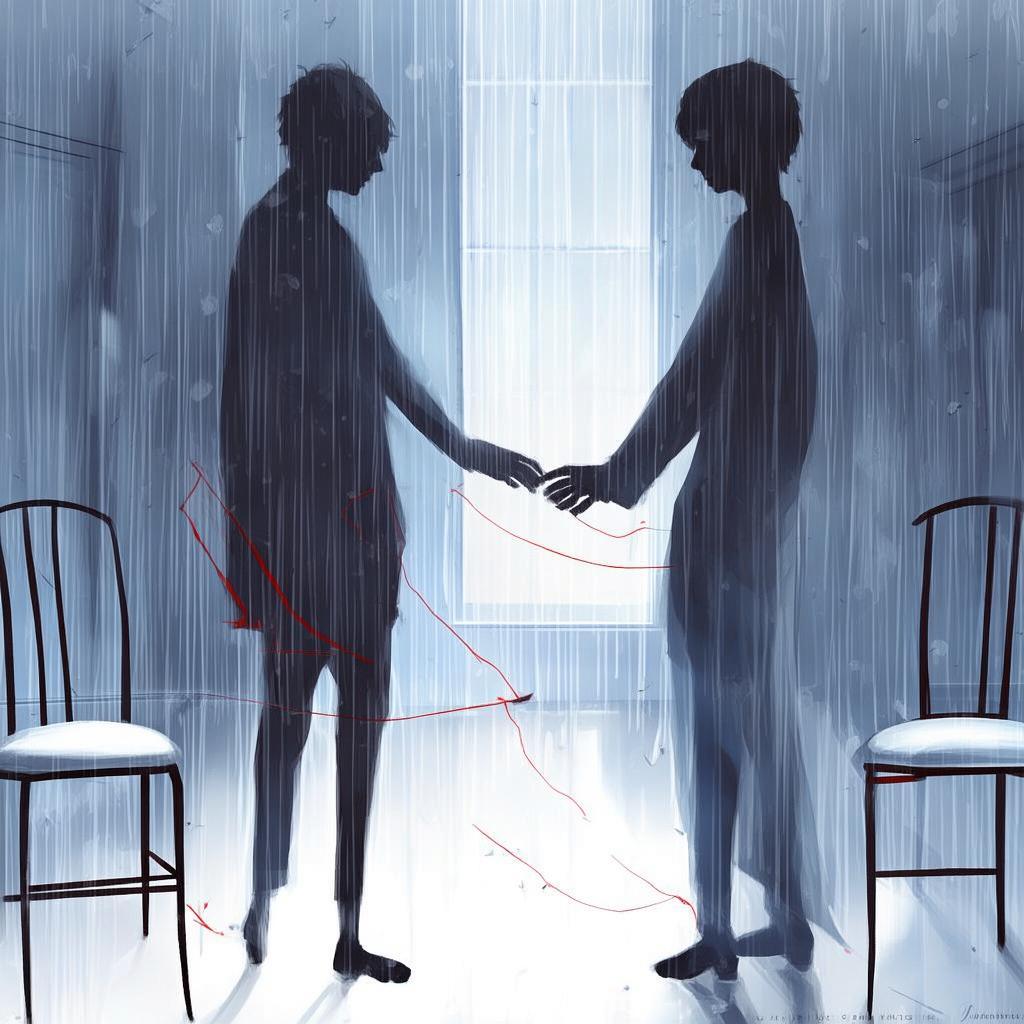
But as the executioner's axe descended, the prince, who had witnessed Cedric's pain and the truth of his love, stepped forward. He raised his hand to stop the executioner, his voice a roar that echoed through the courtyard.
"Cedric is innocent!" the prince declared, his eyes locked with Cedric's. "He has given his life for my kingdom, and I will not see him die for a lie."
The king, taken aback by the prince's outburst, allowed Cedric to live, but the knight had paid a heavy price. The prince, now in a position of power, offered Cedric a chance at redemption, a chance to serve the kingdom once more, but under the prince's watchful eye.
Cedric, bound by duty and love, accepted the offer. As he returned to the battlefield, he knew that his heart belonged to the prince, but his sword was sworn to the kingdom. The days that followed were a constant battle, both on the field and within Cedric's own heart.
The bard, whose song had brought them together, returned to the court, his lyre once again a vessel for the tales of the realm. He sang of the dusk knight and the prince who had risked everything for love. His words, as always, were like a balm, soothing the pain of those who listened.
Years passed, and the tale of the dusk knight and the prince grew into a legend, one that spoke of love that defied all odds and a kingdom that had been saved by a knight's sacrifice. But the story was not without its bittersweet ending. For Cedric, whose heart was now free, found that the love he had longed for was gone, taken by the prince, who had given his life to save him.
The bard, as he played his final song, looked upon the dusk knight, who stood before him, a silhouette against the setting sun. The knight, with a smile that spoke of love and loss, whispered to the bard, "Tell them that even in the darkest night, there is always hope."
And so, the bard played his final note, his lyre a requiem for the dusk knight and the love that had never faded. The tale of the dusk knight, as sung by the weeping bard, would live on, a testament to the power of love and the enduring strength of the human spirit.
✨ Original Statement ✨
All articles published on this website (including but not limited to text, images, videos, and other content) are original or authorized for reposting and are protected by relevant laws. Without the explicit written permission of this website, no individual or organization may copy, modify, repost, or use the content for commercial purposes.
If you need to quote or cooperate, please contact this site for authorization. We reserve the right to pursue legal responsibility for any unauthorized use.
Hereby declared.
